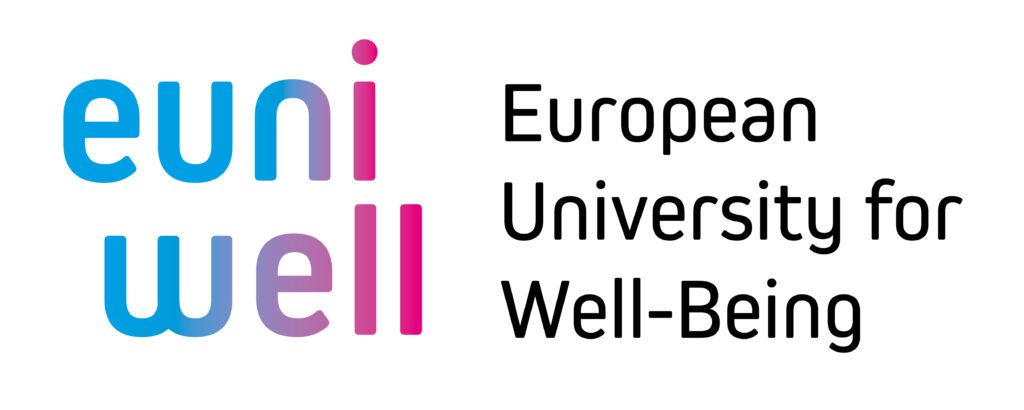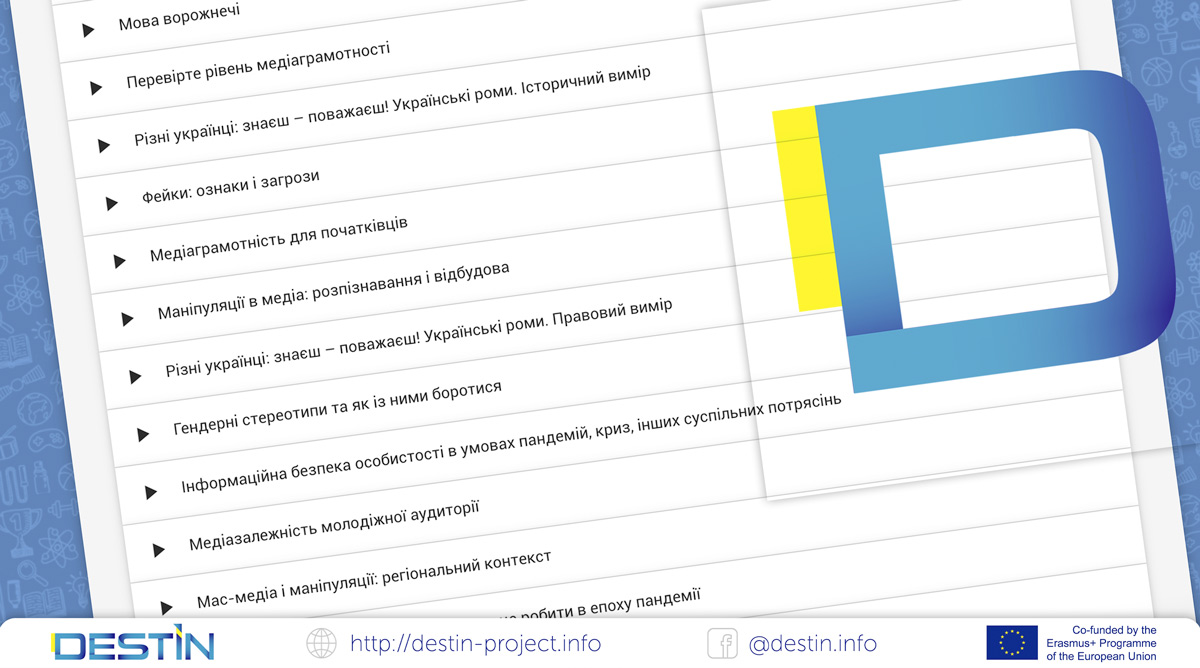The academic staff involved in the Erasmus+ KA2 DESTIN Project were the first to experience the transformation of teaching formats. The modular system gives more time to improve the work of the professor, to work creatively to improve professionalism. The intellectual component of the journalism education reform was formed through the cooperation of 20 European institutions, including 10 Ukrainian universities in the Erasmus+ KA2 DESTIN project. The universities moderated various work packages: updating study programmes and curricula, sustainable development, media literacy outreach courses, preparation of national guideline statements for learning journalism, website support, etc.
The most relevant to the goals of open education in the European Higher Education Area are the “Media Literacy Outreach Courses”. They were created within the framework of the project of the international grant programme Erasmus+ KA2 DESTIN (Erasmus+ KA2 Project – Cooperation for Innovation and the Exchange of Good Practices – Capacity Building in the Field of Higher Education).
Media literacy courses were developed by media specialists from the following Ukrainian universities: Taras Shevchenko National University of Kyiv, Sumy State University, Uzhhorod National University, Zaporizhzhia National University, Yuriy Fedkovych Chernivtsi National University, Stepan Demianchuk International University of Economics and Humanities, Ivan Franko National University of Lviv, Mariupol State University, and Ukrainian Catholic University.
The content of the “Media Literacy Outreach Courses” is based on the analysis of practical cases of the most resonant media topics. Theoretical knowledge alternates with consideration of practical situations. The programme participants learn through practical experience how to distinguish those messages in the media that are manipulative. They also study the mechanisms of creating and spreading disinformation and false messages, as well as the typology of media manipulation. Considerable attention is paid to the independent work of course participants, including students. They practice communicating their knowledge in an accessible way for a lay audience that does not work in the media. For many of them, an interesting task is to create a short video explaining the manipulative nature of the chosen message and advising how not to fall for manipulation.
The reform of journalism education as an open education at the Educational and Scientific Institute of Journalism has taken on new significance due to the ongoing russian war in Ukraine. The destruction of the infrastructure of higher education institutions, migration of students and teachers have changed the usual forms of education. The development of information and communication technologies has also accelerated the introduction of various forms of open education in the institutional environment. The methods of cooperation between the Institute’s management, administration, professors, practicing journalists and students are changing due to the development of information and communication technologies. Distance learning has only just appeared, and there is already a need to improve and enhance computer-aided learning and master flexible learning and the use of artificial intelligence. The scientific foundation that prominent philosophers and intellectuals of different times and nations considered the idea/mission of the university is now being complemented by strategies for training leaders – an ambitious intellectual elite that will be able to overcome hybrid threats, strengthening the national resilience of Ukrainian state.
Author: Bogdana Nosova, Associate Professor, Taras Shevchenko National University of Kyiv, Educational and Scientific Institute of Journalism

